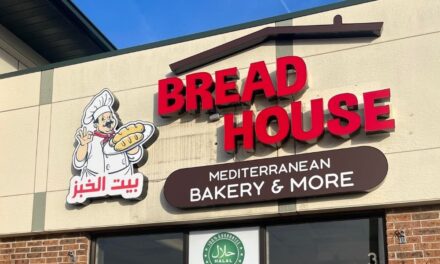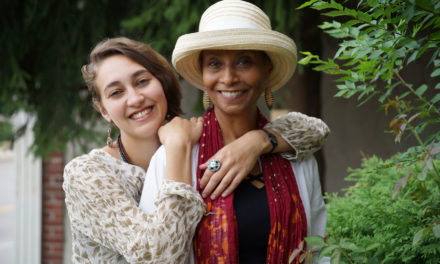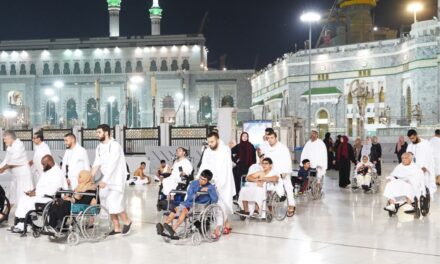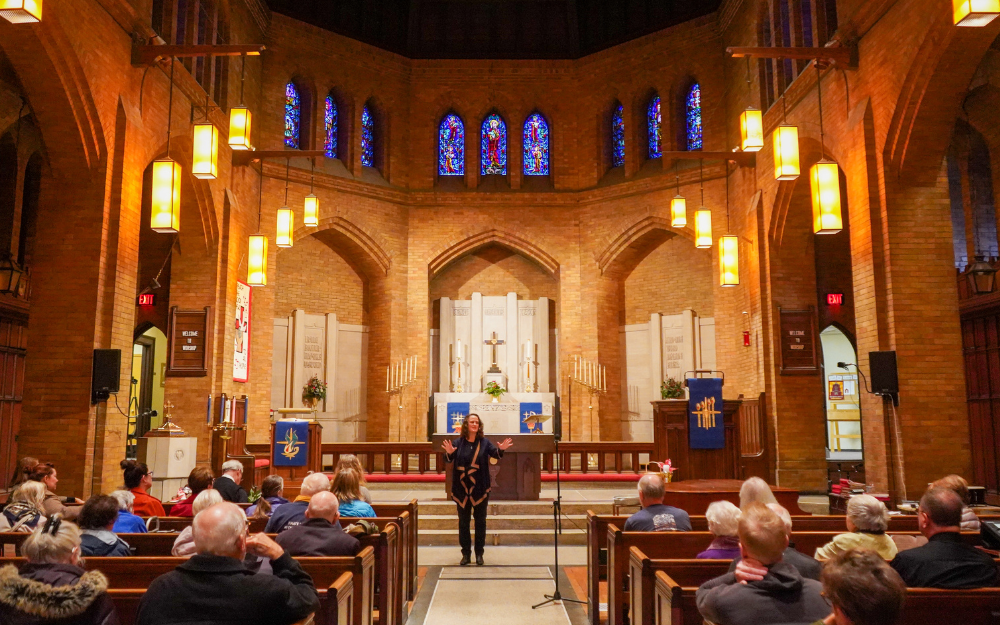
Photos by Kamal Moon
“Even if Israel has a right to defend itself, it has to do so according to international law,” Churches for Middle East Peace executive director Mae Elise Cannon, Ph.D., told Wisconsin Christians for Justice in Palestine members last week at Redeemer Lutheran Church in Milwaukee.
“We have a role to play in working towards peace,” Rev. Mae Elise Cannon, Ph.D., executive director of Churches for Middle East Peace, told members of Wisconsin Christians for Justice in Palestine.
CMEP is a coalition of more than 30 national church communions and organizations “working to encourage U.S. policies that actively promote just, lasting and comprehensive resolutions to conflicts in the Middle East.”
Wisconsin Christians for Justice in Palestine, a month-old organization co-founded by Redeemer Lutheran Church pastor Lisa Bates-Froiland, Ph.D., recently joined the national Churches for Middle East Peace.
Bates-Froiland told guests gathered at the Milwaukee Muslim Women’s Coalition’s annual gala Saturday evening she was inspired to start WCJP after MMWC founder Janan Najeeb started the Wisconsin Coalition for Justice in Palestine in mid-October.
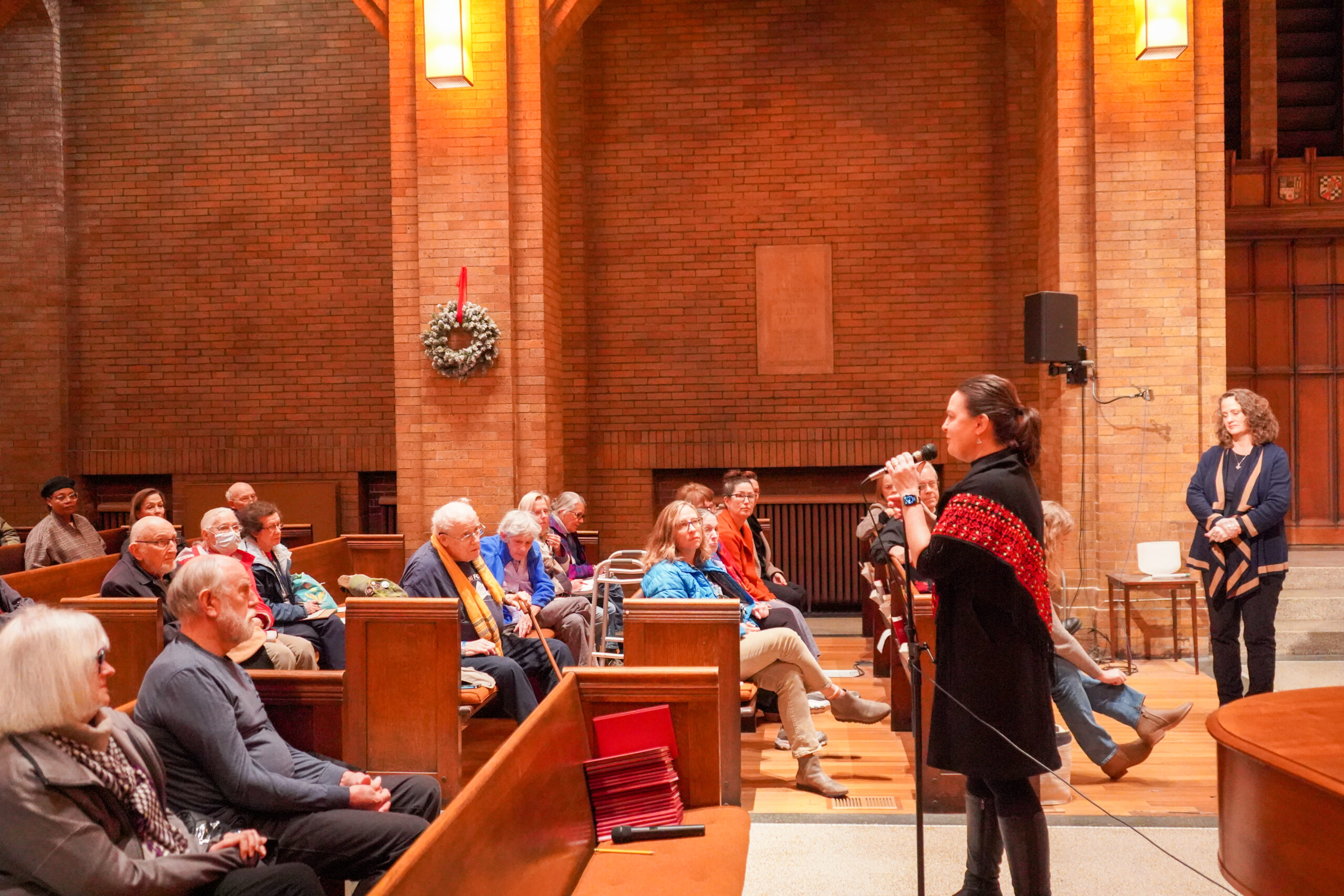
After visiting the West Bank and seeing the lives of Palestinians under Israeli occupation, Redeemer Lutheran Church pastor Lisa Bates-Froiland, Ph.D., began speaking publicly in support of Palestinian rights.
“In the absence of an interfaith group in the Milwaukee area willing to take a stand (on Israeli bombing in Gaza), Janan and many of the friends here decided to build their own,” Bates-Froiland said. “Now there are more than 50 members.
“And for my part, as a Christian who is not a Christian Zionist, not a Christian nationalist, a Christian who follows the mission and ministry of Jesus Christ of Nazareth, I need to build something, too.”
Churches for Peace in the Middle East executive director visits Milwaukee
WCJP invited Cannon to Milwaukee last weekend to share “the most updated information and context from the ground,” the program said. She works in the Churches for Peace in the Middle East offices in Washington, D.C., and travels frequently to the Middle East.
Cannon gave a briefing and led a “conversation on the bombing of Gaza” Saturday, Dec. 2, at Redeemer Lutheran Church in Milwaukee. About 40 mostly older adults attended.
“She has her ear close to the ground not only in Israel and Palestine but in the White House,” said Bates-Froiland in her introduction of Cannon, who recently accompanied a delegation of Palestinian Christian leaders to meetings with the White House and on Capitol Hill.
The delegation came with a letter addressed to President Joe Biden, signed by an ecumenical group of six pastors from Bethlehem, reported Sojourners, an ecumenical Christian media organization. “We write to you in deep sorrow and pain,” it said. “Enough death. Enough destruction. … This is our call and prayer this Christmas.”
Urging President Joe Biden to work toward a ceasefire was the “Number One” goal of the Palestinian delegation, Cannon told Sojourners.
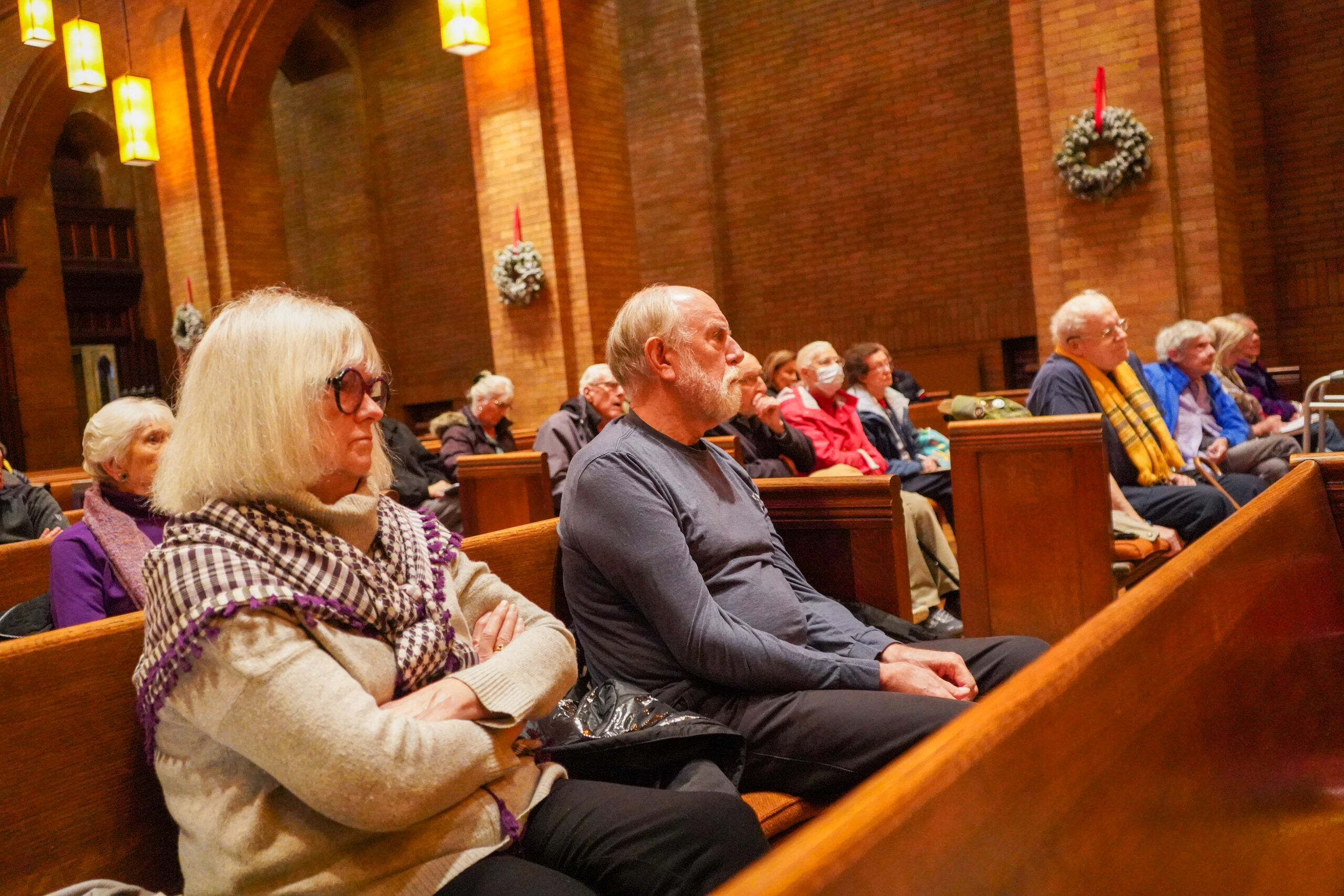
About 40 people attended the conversation on the bombing of Gaza last week at Redeemer Lutheran Church in Milwaukee.
CMEP condemned “the escalating violence in Jerusalem, the West Bank and Gaza that is having devastating effects on civilians,” in a statement issued Sunday, Dec. 3. “The Biden Administration’s reluctance to support a comprehensive ceasefire and its consistent practice of publicly articulating empty rhetoric about the protection of civilians is abhorrent as Israel continues its destructive bombardment on the Gaza Strip and more than 170 have died in the first 24 hours (since the temporary pause in fighting ended).”
It called on “the Biden administration and Congress to shift course and publicly support a comprehensive, bilateral ceasefire that will bring an end to the devastating violence. The continued violence and destruction do nothing to make Israelis or Palestinians safer.”
A turning point
Cannon, an ordained pastor, now holds two doctorate degrees: a Ph.D. in American history with a minor in Middle Eastern studies from the University of California—Davis (her dissertation is on the history of the American protestant church in Israel and Palestine) and a Doctorate of Ministry from Northern Theological Seminary.
When she had earned an M.B.A., a Master of Divinity and an M.S. in bioethics and had a book coming out on global justice issues, “I thought I knew a thing about the world. I thought I was kind of hot stuff,” she said. A trip to the West Bank changed Cannon’s perspective and became a turning point in her life.
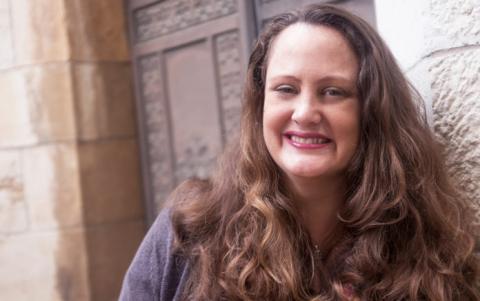
Rev. Mae Elise Cannon, Ph.D.
“I was in a neighborhood in East Jerusalem and protesters were chanting, ‘Free Palestine.’ For me, Palestine was just a map in the back of my Bible.
“Then I went to Bethlehem Bible College in Bethlehem and heard the story of the founder, Bishara Awad, “how in 1948, he became a Palestinian refugee; his father, a civilian, had been killed by an Israeli soldier.”
Awad “was part of a Palestinian Christian family with deep roots in the Holy Land,” the college website explains.
“I learned he was one of more than 750,000 Palestinians who were displaced from their homes through what the Palestinians call the ‘Nakba,’ the catastrophe,” Cannon continued.
“I went to my publisher and said, I can’t have a book coming out about social justice and not at least acknowledge Israeli-Palestinian conflict, which I previously knew nothing about.”
The book, ready to go to press, could not be typeset again. The publisher agreed to add one sentence. In a section about South African Apartheid, it says, “Jimmy Carter has published a book called Peace Not Apartheid about the Israeli-Palestinian conflict.”
From that moment, Cannon changed her scholarly focus from the role of churches in the U.S. civil rights movement to American protestant churches in the Middle East and began her role as an advocate of peace and justice in Palestine.
What’s happening now
Cannon began her briefing, saying, “Oct. 7 for Jewish people in Israel and around the world was a great trauma. The actions of Hamas on Oct. 7 and the killing of civilians absolutely should be condemned.
“It is very important for us to understand Jewish trauma and antisemitism is real. We need to work against antisemitism.
“In some activist spaces, there’s no room to speak out against antisemitism because it’s believed if you acknowledge Jewish suffering, it minimizes acknowledging human rights and justice for Palestinians. I believe when we acknowledge Jewish suffering, … it strengthens our arguments for human rights, equality and justice for Palestinians.”
Nevertheless, “the way the government of Israel responded to Oct. 7 was to declare war not only on Hamas but on all the civilians in Gaza, of which there are more than 2.3 million.
“On Oct. 8, the prime minister of Israel formed a war cabinet and they turned off water, gas and electricity for more than 2 million people. That is against the international law and a crime against humanity. The civilians who live in Gaza are not Hamas.
“Then a bombing campaign began that has now killed more than 14,000 people of whom 6,000 are children.
“This is the most extreme, radical, far-right government that has ever existed in the history of Israel. Many in the government are extremists. They have used language, which interestingly is not often reported in American media. They have said their first goal is to completely destroy Hamas.
“The second is the complete destruction of all of the infrastructure in Gaza. How can 2.3 million people live if the entire infrastructure is destroyed?”
Since Hamas was democratically elected in 2006, Israel said it was unacceptable and put a blockade on Gaza, she explained.
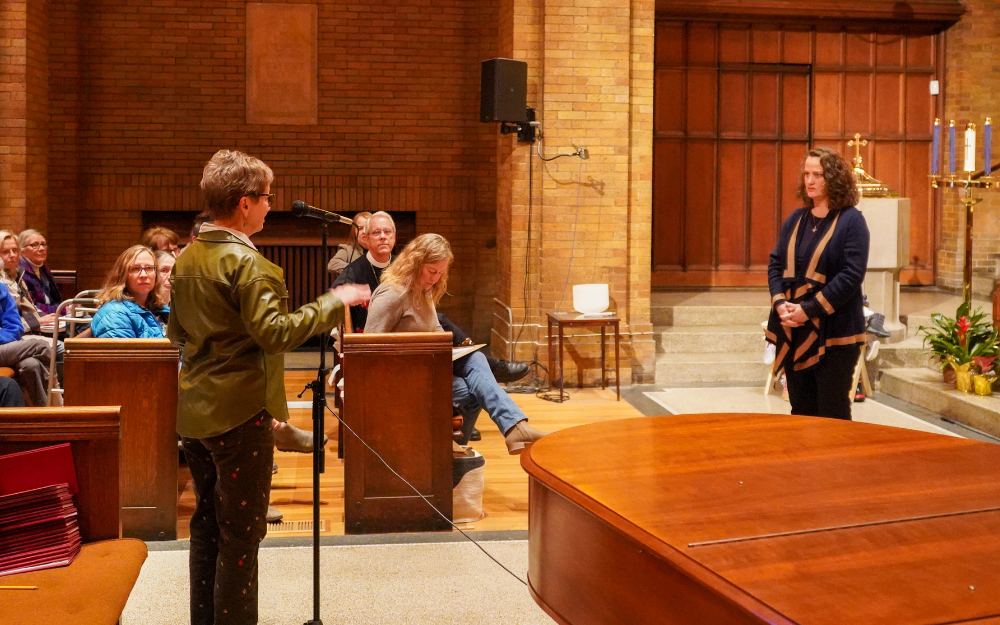
Attendees of the Wisconsin Christians for Justice in Palestine’s session last week with Churches for Peace in the Middle East executive director Mae Elise Cannon, Ph.D., asked questions and shared their perspectives.
“By international law, fishing is allowed 20-plus kilometers out but Israel has pushed the blockade in, often allowing Palestinian fishermen to fish only three-five kilometers offshore,” often shifting the boundary as a form of collective punishment, she said.
“The blockade along the land has been completely controlled by a militarized fence with guns and motion detectors,” she continued. “If you went within one kilometer of the fence, you would be shot.
“Before Oct. 7, it took more than 500 trucks a day just to have the economy be able to continue. That was for basic supplies such as water, food, gas and medical aid.”
After the Oct. 8 shutting off of water, gas and electricity, all entrances into Gaza were also completely shut down. Aid trucks were not allowed in Gaza again until Oct. 21, with an average of 19 trucks during the first few days. Later that number went up to 50, still significantly less than needed, she said.
During the first two weeks of the war, “Netanyahu demanded the population of north Gaza to move to south Gaza, internally displacing 1.4 million people. The number of displaced people in Gaza today is 1.7 million.”
Israeli ground forces entered into northern Gaza. “The hospitals have shut down. The people are suffering,” she said.
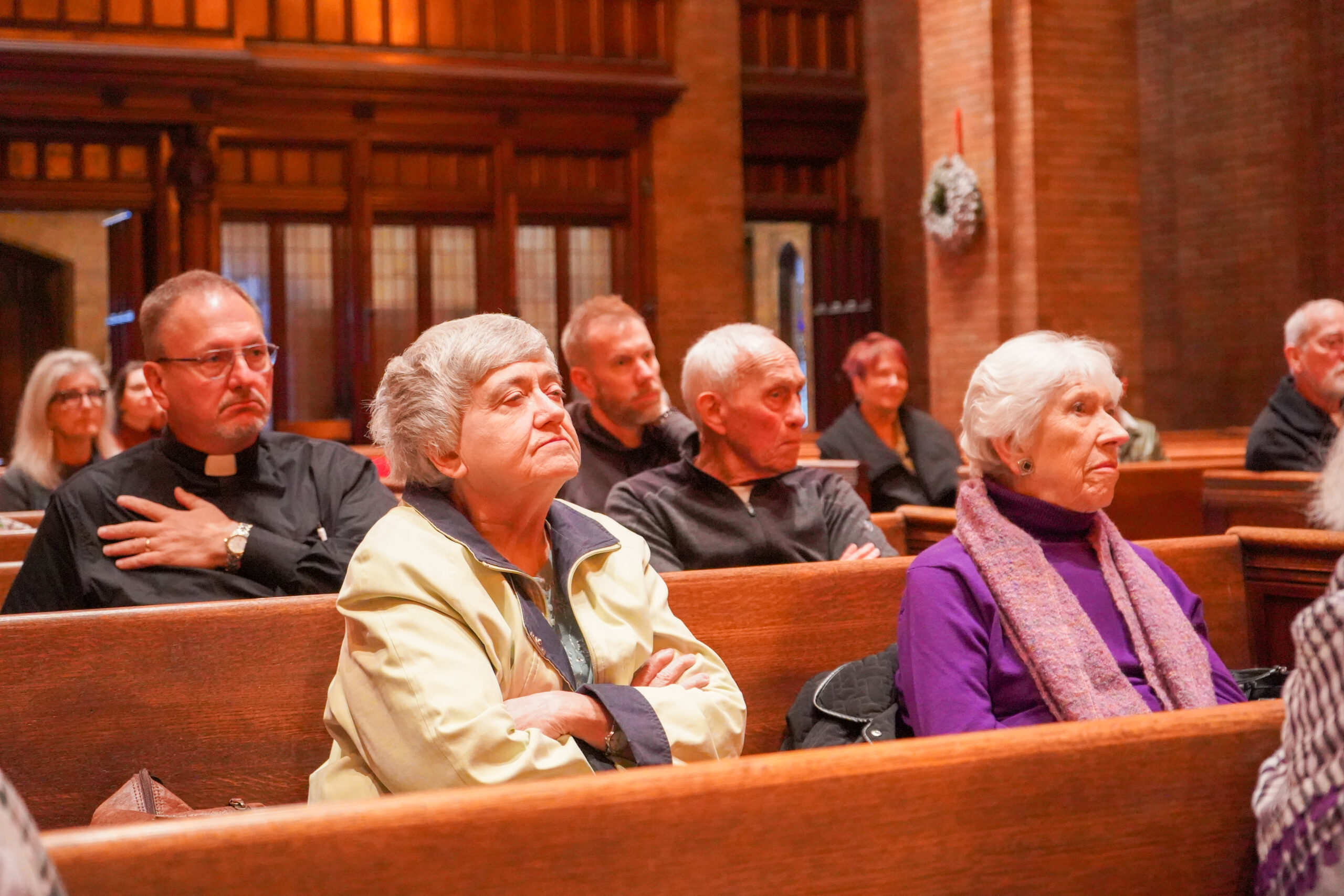
“Have you heard of administrative detention?” Cannon asked. It allows Israel to detain a Palestinian without any charges or due process, she explained. “They are arrested and can be held for up to 10 years. After 10 years, it can be renewed. So, Palestinians can be held with no charges for perpetuity.
“There are children held in administrative detention. It’s believed the only thing they might have done is throw stones. In the first round of exchanges (of hostages for prisoners), many of the Palestinian prisoners released were women and children.
“I do want to talk for a few minutes about what is happening in the West Bank,” Cannon segued. “Palestinians there say it is worse now than during the Second Intifada (2000-2005), which is astounding to me. That was a time of significant violence, when one of the mechanisms of resistance for Palestinians was suicide bombing. Israel’s response was disproportionate. The Second Intifada was brutal and bloody.
“Christians in Bethlehem are saying, ‘We are so desperate. If we don’t have a ceasefire very soon, there will be no Christians here. The churches will become stones and museums. There will be no living Christians left in the land where the faith began.
“On Oct. 7, there were roughly 1,000 Christians in Gaza. Since then, churches, hospitals and other Christian buildings, even refugee schools, have been bombed. In one church bombing, 18 Christians were killed,” and it was not the only one.
And for those living, life has become too challenging, she said. What happens when Christianity disappears in the Holy Land? Cannon asked.
Meanwhile, the Biden administration is “utterly opposed to a ceasefire, saying, ‘Israel has the right to defend itself.’
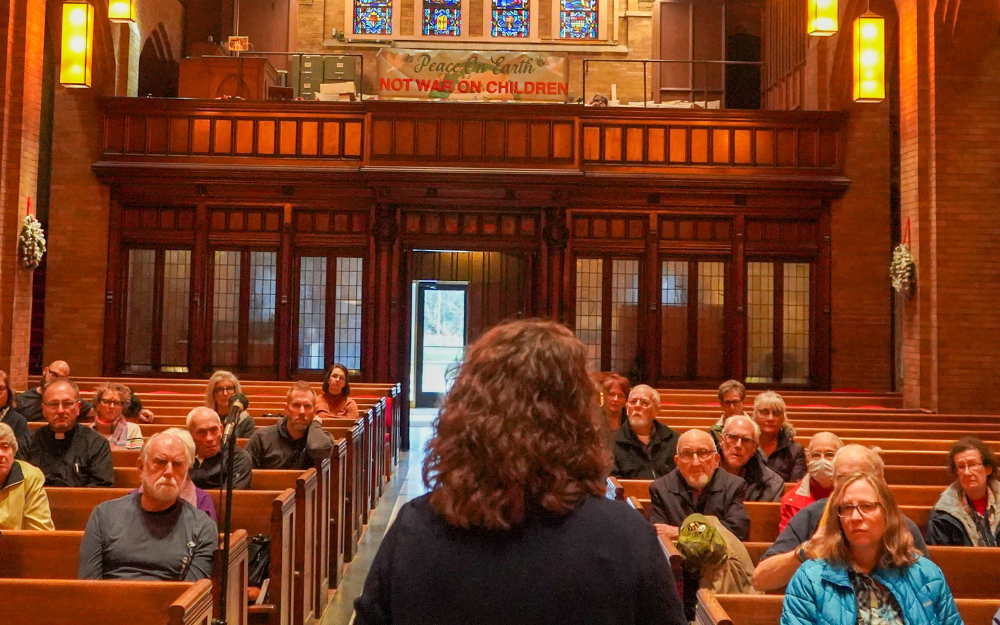
“Here’s my assertion: Even if Israel has a right to defend itself, it has to do so according to international law. When you turn off water and gas and electricity from more than 2 million people, that is a violation of international law.
“We heard Tuesday from the White House things will be different, that the U.S. would hold Israel accountable and there would be targeted killing of Hamas. They said they are not going to allow the same degree of civilian deaths.
“Then I get a text at midnight, in less than four hours (after the pause ended), dozens of civilians had been killed. The Office of Humanitarian Affairs reported in the first 24 hours since the temporary pause ended 174 people were killed.
“I woke the next morning and sent a letter to the White House and said, ‘Where is your integrity?’”
“The U.S. is not only refusing to acknowledge the atrocities (Israel commits), they’re ignoring the violation of international law. They’re ignoring our complicity. Just last week, Congress debated whether or not we give an additional $14 billion plus in military aid to Israel that will be used in this war.”
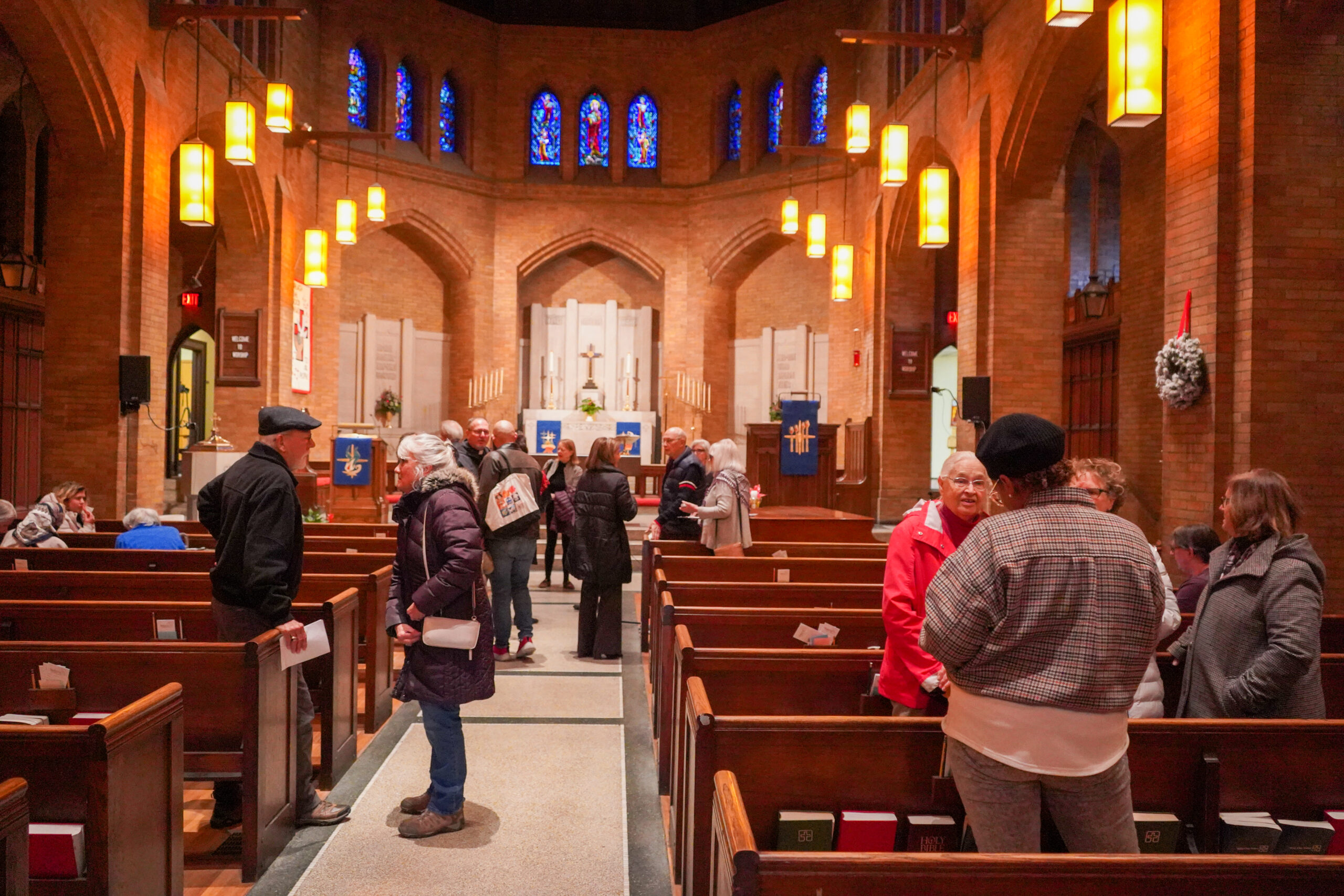
What can we do?
Bishop Paul Erickson of the Greater Milwaukee Synod of the Evangelical Lutheran Church in America responded to the briefing, suggesting next steps.
He noted the ELCA Senate Council decided recently to partner with Churches for Middle East Peace.
“First, … I am reminded of the need to hold our perspectives lightly. … We need to stay curious so we can learn. That’s our first calling, to be open, continually learning more and humbled by our limited ability to fully understand. …
“There are a few core truths we need to hold on to. Regardless of what led to the situation and the history … we all understand murder and kidnapping and indiscriminate bombing are not steps that lead to lasting peace. That is fundamentally what we are hoping for, praying for and working for, … a sustainable lasting peace.”
We can pray, he said.
We have to learn. “We need to become better informed because it strengthens our hearts.
“If we know the stories of the people for whom we are praying, … then we’re not just praying for concepts or abstract things. Instead, we are praying for human beings who are living in the midst of bombing and terror.”
“We need to advocate. We continue to communicate with our elected leaders and say our tax dollars should not be supporting (those breaking) international law, whatever side they are on. We need to stay true to our core principles. … I believe that Christianity has been created so that we might become better human beings and to simply live lives of peace and honor and dignity.”
Wisconsin Christians for Justice in Palestine will hold a prayer vigil for the children of Palestine at 3 p.m. today, Friday, Dec. 8, at Cathedral Square in Milwaukee.
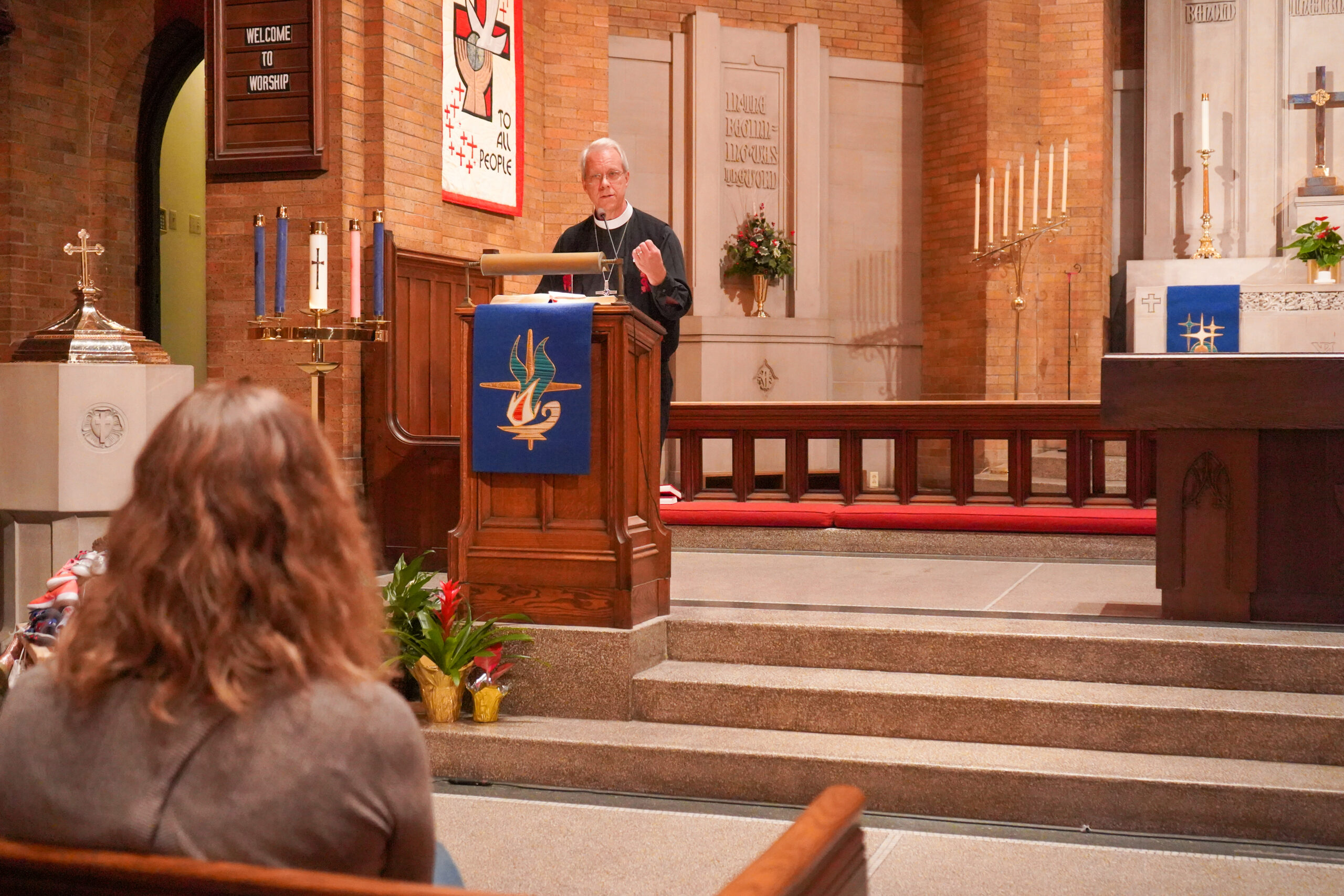
Greater Milwaukee Synod of the Evangelical Lutheran Church in America Bishop Paul Erickson suggested a Christian response to the crisis in Gaza: “Learn, pray and advocate.”
